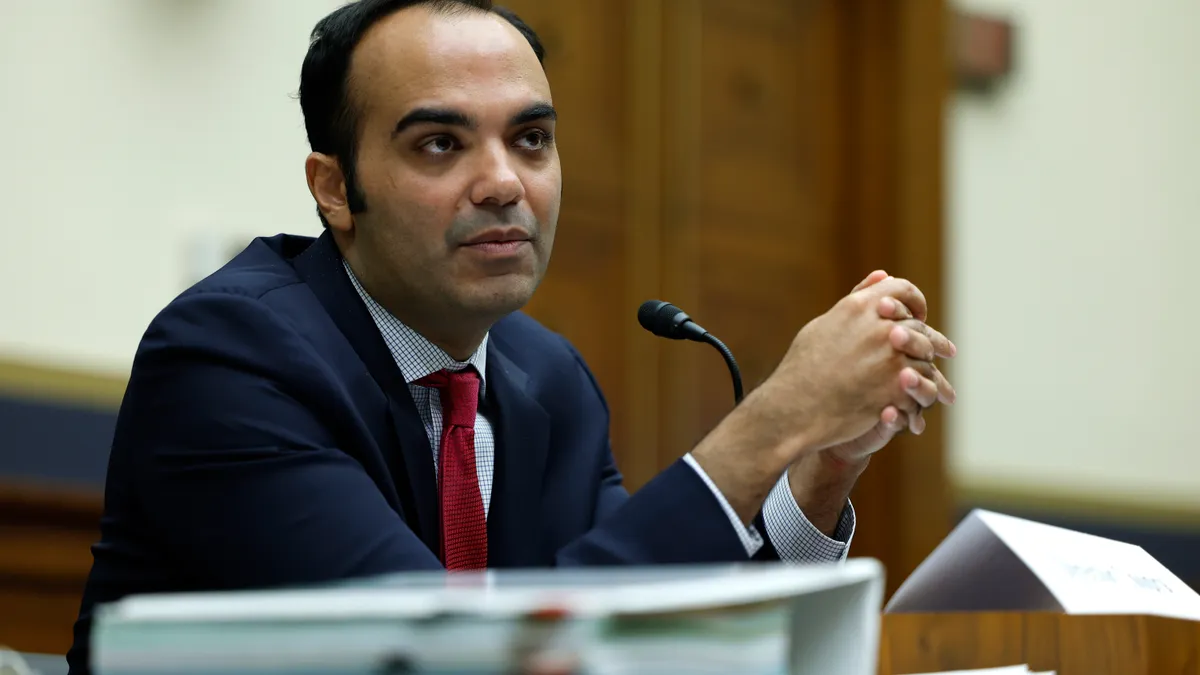Dive Brief:
- The Consumer Financial Protection Bureau finalized a rule Tuesday to track and register nonbank financial institutions that break consumer laws.
- Under the rule, nonbanks that have been issued court orders from a federal, state, or local agency must register with the CFPB. A senior executive must also submit an attestation that the institution is following the order.
- “Too often, financial firms treat penalties for illegal activity as the cost of doing business,” CFPB Director Rohit Chopra said in a prepared statement. “The CFPB’s new rule will help law enforcement across the country detect and stop repeat offenders.”
Dive Insight:
When nonbank financial institutions break consumer laws, government agencies may take action and issue a legally binding court order. While such court orders are publicly available documents, there is no central place to track them.
The consumer agency is seeking to change that with its registry. The goal is to rein in repeat offenders, a priority for the CFPB.
The bureau expects the rule to cover roughly 155,000 nonbanks and estimates that between 1% to 5% are subject to court orders and will have to register with the bureau. The rule does not cover banks because they are already subject to more state and federal government oversight.
The CFPB expects state regulators and law enforcement, as well as investors, creditors, business leaders and the public considering doing business with a financial institution to use the registry.
“Too many American families have been harmed by corporate repeat offenders in a rinse-and-repeat cycle of illegality, where bad actors see fines and penalties as the cost of doing business,” Chopra said in prepared remarks. “Throughout our economy, we have seen fraudsters and scam artists get caught in one part of the country and restart their scheme in a new place hoping to not get caught again.”
In a letter to the bureau last year, trade groups, including the Chamber of Commerce, urged the CFPB to withdraw its proposed rule, claiming that “naming and shaming companies and their executives” does not help consumers.
The group was concerned that the rule "would impose very real costs upon consumer financial services companies that are subject to its requirements, including by driving up compliance costs through an unlawful executive attestation requirement.”










